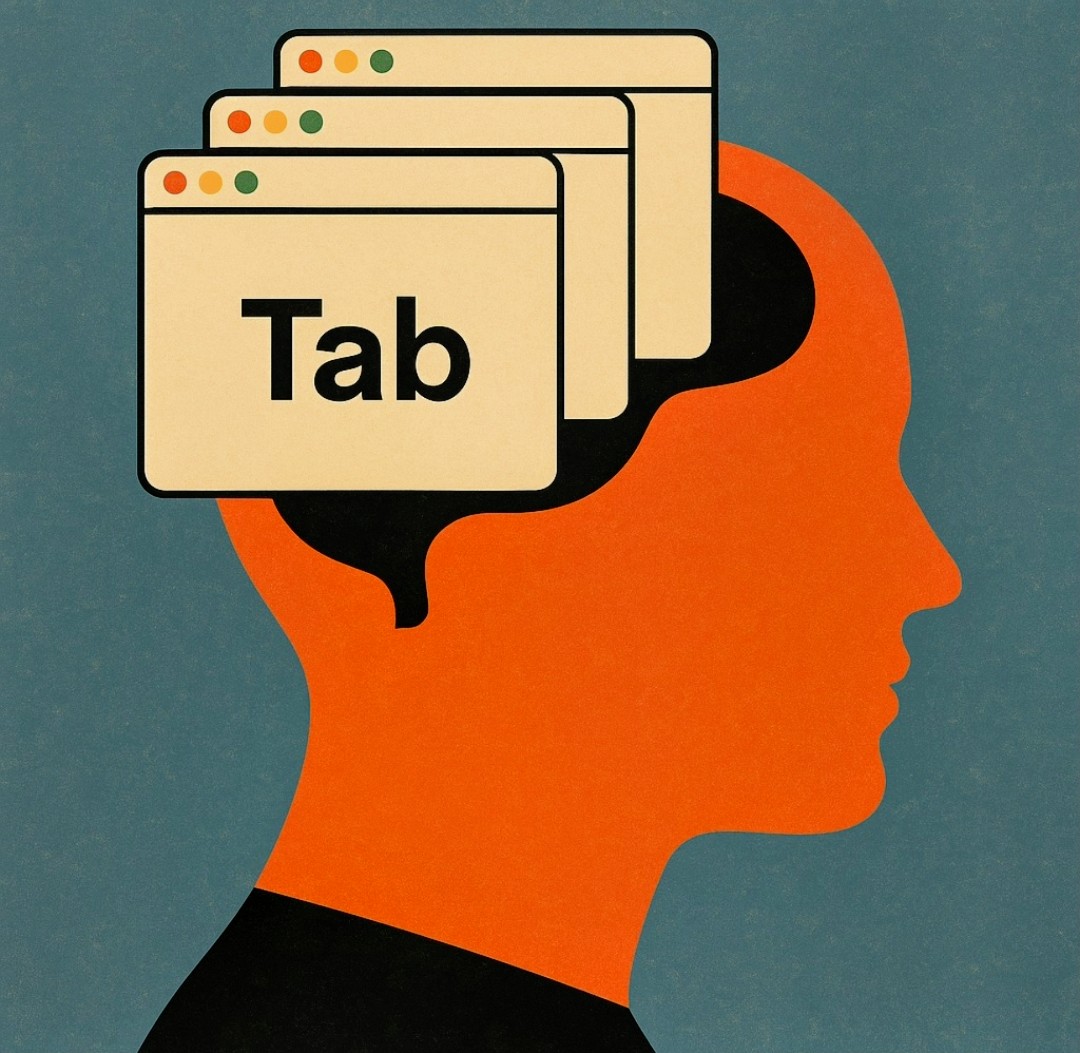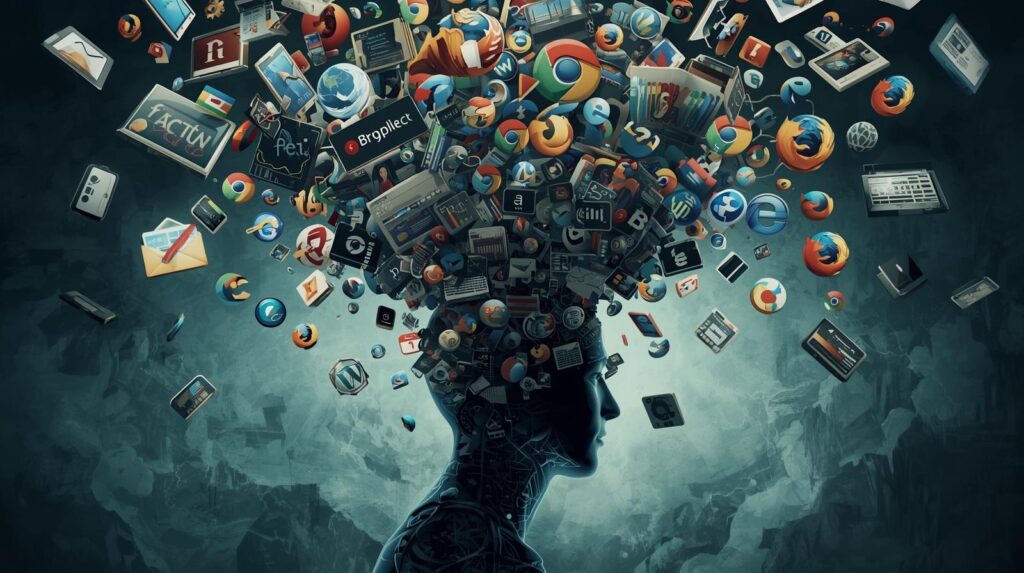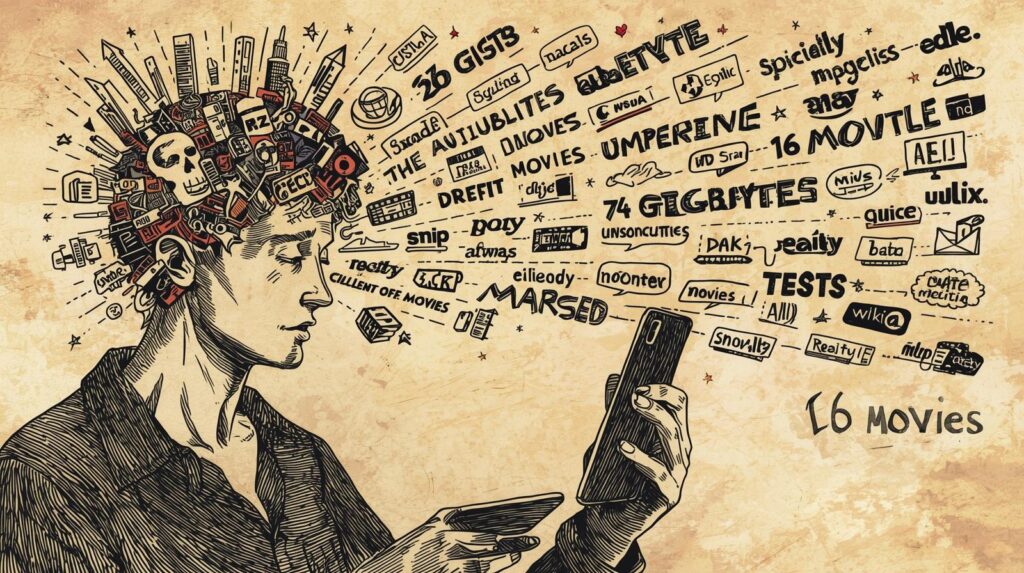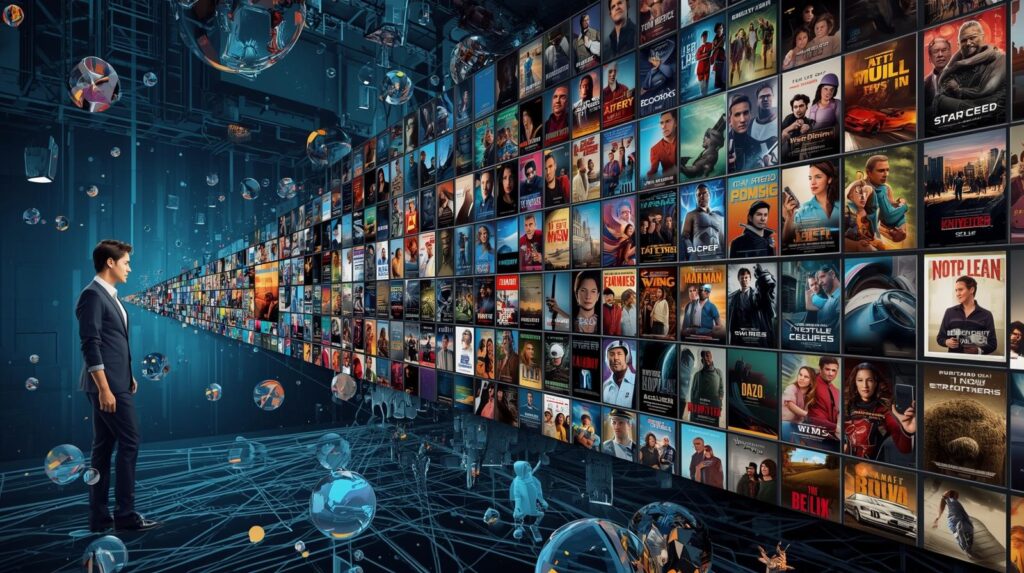Inevital Error : Open Tabs In Behind Of The Mind

As a culture, we’re experiencing an extraordinary poverty of attention and focus. we’re son distracted by our devices. We’re more anxious and stressed and depressed than we ever have been before. So , can we reverse this sort of automatic patterns ? Inevital Error : Open Tabs In Behind Of The Mind explains the rigid burden of modern people.
The rhythm of life and the allure of clinging to possibilities compel us to be friend with technology to establish a harmonious, balanced, and sometimes synchronized relationship with it. We’ve all felt this at some point. A wrong click, a delayed task, or a careless swipe can often delay things and cause us to miss out on what we want in our daily lives. And unfortunately, the cost is often quite high.

For example, imagine buying a plane ticket but not being able to check in. When an app crashes or you forget to log in, you miss out on a lot. A two-hour flight and a unique experience in Europe hinges on a 10-second check-in process.
Another example is how many times you apply to open jobs or are able to apply, per day while you are not working. In this situation, too many applications with many clicks or swipes increase your chances of receiving a response from a human resources. Imagine the impact this increased probability can have on shaping your life and next level of your life.
And finally to gain the thinking habitts to detect automatic anomally within a minute.

pre-organized stimulation urge us to look away in way of open-tabs in behind.
Inevital Error 2 : Overlapping Open Tabs
We can not truly focus on two demanding things at the exact same time; what the brain does is rapid task-swtiching. Therefore, each time we switch focus, there is cognitive cost ( attention residue). Resources are spent disengaging from one task and activating the next, during which performance drops. One famous estimate is up to 40 % loss of productive time due to the start/stop process of mentally toggling between tasks.

In essence, each ”tab” we keep open siphons some attention, leaving less available for other task. When many tabs are active, the brain is constantly context-switchingi which taxes neural resources and induce fatigue. This is the the cost of multiple attention.
Every click, every scroll and every headline is designed to bypass our councious awareness and hijack our emotions. Other words, fear is powerful in hustle culture.
The astounding amount of thought in average person is an approxiametly about 60.000 per day. 45.000 of them are negative and repetitive. On the Other hand, a different valuable research is linked to attention span. The average person can focus just 12 second to anything.
According to some studies, the average person is consuming around 74 GB of data per day. ( It is equivalent to 16 movies ) https://contentdiving.com/2025/02/08/digestion-of-thinking-infected-perception-colonized-mind/
To avoiding from Infected Inputs is inevitable. Mental Housekeeping is rather be crucial. Automatic behaviour needs to be controlled by our instinct. To managing all inputs, we will need to have a automatic anomally detection mechanism. Automatic anomally detection.

At work, there’s a situation you need to report at a specific hour on a specific day.
Now imagine the cost — on an international scale, across multiple relationships — of a small error or delay in that report.
Overlooked Error : Mental Bandwidth is finite
Yes, this is the striking cost and calculation of living in a world where a single room, or a small workplace, can transform into a global village. In this age of interconnectedness, where everything is instantly and globally linked, being functional, attentive, active, and able to manage your energy and focus has become absolutely essential.
That’s why attention is called the currency of the new world.
The faster you capture ideas in your mind along with images, the greater your capacity for analogy and transformation becomes in an instant, and the more successful you will be if you record and solidify them.
The anxiety many of us feel — about falling behind, about struggling to dance with the chaos and rhythm of daily life — stems from the fact that civilization and modernity have become an era of speed and acceleration.
Because rewards are distributed accordingly, interpretations are made accordingly, and life experiences are measured through that very lens.

When mental bandwidth is full, even small tasks feel overwhelming. It’s affected by stress, sleep, emotional clutter, and information overload. It’s similar to a computer’s RAM: limited, easily consumed by background processes. Worrying about bills while trying to focus on work drains bandwidth.
Mental Housekeeping — Maintenance and Renewal“Mental housekeeping” is the intentional process of clearing, organizing, and resetting your inner environment to free up bandwidth. It’s the psychological equivalent of tidying your room or cleaning a workspace.It includes habits like reflection, journaling, prioritization, emotional processing, digital detox, or rest.Its purpose is to reduce cognitive clutter and renew clarity.
The Mind as an Operating System Bandwidth = RAM — your live working memory. Housekeeping = System maintenance ,closing unused apps, clearing cache, rebooting.The smoother your housekeeping, the more bandwidth you have for creativity…


